Filter by

Techné/Technology: Researching Cinema and Media Technologies - Their Develop…
This fourth title in the series The Key Debates sets out where the term techne comes from, how it unleashed a revolution in thought and how the concept in the midst of the current digital revolution, once again, is influencing the study of film. In addition, the authors - among them André Gaudreault, Geoffrey Wintrop-Young, Martin Lefevbre, Dominique Chateau, Nanna Verhoeff, Andreas Fickers an…
- Edition
- -
- ISBN/ISSN
- 9789089645715
- Collation
- -
- Series Title
- -
- Call Number
- 791.43 OEV t

Subjectivity. Filmic Representation and the Spectator's Experience
Subjectivity is a central concept in film theory, philosophy and cultural studies. It was also a key term in the reception of the Nouvelle Vague film movement in France and Italy from the start of 1945. This timely volume explores the ways in which the concept of subjectivity has made its way into film theory, history, practice and criticism, as well as the confrontations of the subject with th…
- Edition
- -
- ISBN/ISSN
- 9789089643179
- Collation
- -
- Series Title
- -
- Call Number
- 791.43 CHA s
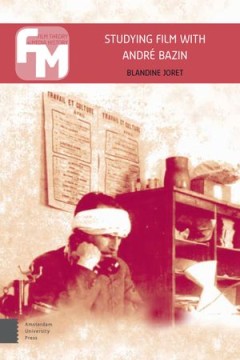
Studying Film with André Bazin
The impact of French film critic André Bazin (1918-1958) on the development of film studies, though generally acknowledged, remains contested. A passionate initiator of film culture during his lifetime, his ideas have been challenged, defended and revived throughout his afterlife. Studying Film with André Bazin offers an entirely original interpretation of major concepts from Bazin’s legacy…
- Edition
- -
- ISBN/ISSN
- 9789048542086
- Collation
- -
- Series Title
- -
- Call Number
- 791.43 JOR s
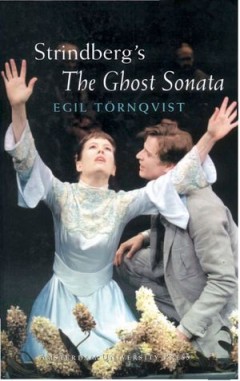
Strindberg's Ghost Sonata
Generally considered one of milestones in the development of modern drama, August Strindberg's chamber play The Ghost Sonata (1907) has variously been hailed as the first expressionist, surrealist and absurdist drama. rIn this monograph of the play as text and as performance - the first of its kind - Egil Törnqvist examines, in four chapters, the source text, various translations of it into En…
- Edition
- -
- ISBN/ISSN
- 9789053564356
- Collation
- -
- Series Title
- -
- Call Number
- 792 TOR s
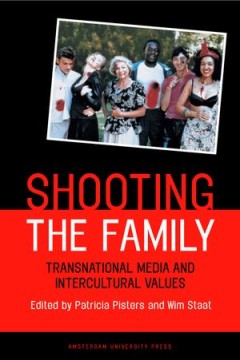
Shooting the Family
Do contemporary movements of migration and the ever-increasing abundance of audiovisual media correspond to - or even cause - shifts in the defenition of both the bourgeois nuclear family and the tribal extended family? In Shooting the Family, twelve authors investigate the transfigured role of the family in a transnational world in which intercultural values are negotiated through mass media l…
- Edition
- -
- ISBN/ISSN
- 9789053567500
- Collation
- -
- Series Title
- -
- Call Number
- 790.2 STA s
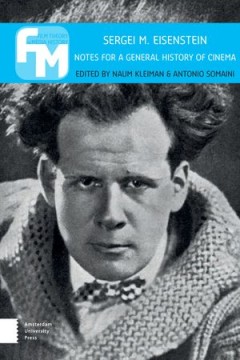
Sergei M. Eisenstein: Notes for a General History of Cinema
One of the iconic figures of the twentieth-century cinema, Sergei Eisenstein is best known as the director of The Battleship Potemkin, Alexander Nevskii and Ivan the Terrible. His craft as director and film editor left a distinct mark on such key figures of the Western cinema as Nicolas Roeg, Francis Ford Coppola, Sam Peckinpah and Akiro Kurosawa.This comprehensive volume of Eisenstein’s writ…
- Edition
- -
- ISBN/ISSN
- 9789089648440
- Collation
- -
- Series Title
- -
- Call Number
- 790.2 KLE s
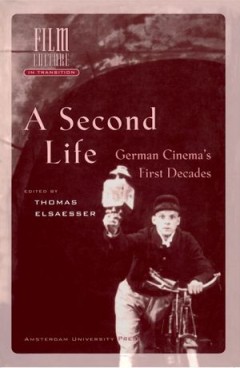
A Second Life
German cinema is best known for its art cinema and its long line of outstanding individual directors. The double spotlight on these two subject has only deepened the obscurity surrounding the popular cinema. A Second Life performs a kind of archaeology on a period largely overlooked: the first two decades of German cinema. This collection of essays by established authors refocuses the terms of …
- Edition
- -
- ISBN/ISSN
- 9789053561720
- Collation
- -
- Series Title
- -
- Call Number
- 790.2 ELS s
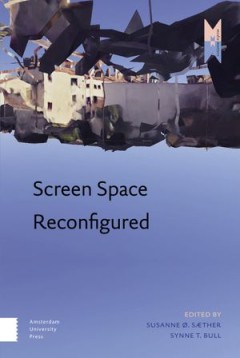
Screen Space Reconfigured
Screen Space Reconfigured is the first edited volume that critically and theoretically examines the many novel renderings of space brought to us by 21st century screens. Exploring key cases such as post-perspectival space, 3D, vertical framing, haptics, and layering, this volume takes stock of emerging forms of screen space and spatialities as they move from the margins to the centre of contemp…
- Edition
- -
- ISBN/ISSN
- 9789048529056
- Collation
- -
- Series Title
- -
- Call Number
- 791.43 SCR s
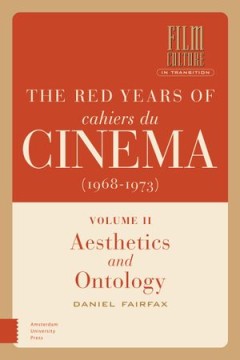
The Red Years of Cahiers du Cinéma (1968-1973), Volume II: Aesthetics and On…
The uprising which shook France in May 1968 also had a revolutionary effect on the country's most prominent film journal. Under editors Jean-Louis Comolli and Jean Narboni, Cahiers du cinéma embarked on a militant turn that would govern the journal's work over the next five years. With a Marxist orientation inspired by the thinking of Louis Althusser, Jacques Lacan and Roland Barthes, the ""re…
- Edition
- -
- ISBN/ISSN
- 9789048543915
- Collation
- -
- Series Title
- -
- Call Number
- 791.43 FAI r
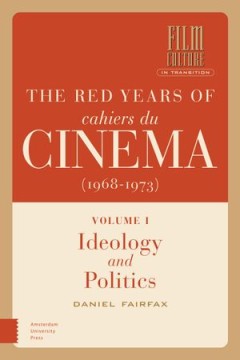
The Red Years of Cahiers du Cinéma (1968-1973), Volume I
The uprising which shook France in May 1968 also had a revolutionary effect on the country's most prominent film journal. Under editors Jean-Louis Comolli and Jean Narboni, Cahiers du cinéma embarked on a militant turn that would govern the journal's work over the next five years. With a Marxist orientation inspired by the thinking of Louis Althusser, Jacques Lacan and Roland Barthes, the "red…
- Edition
- -
- ISBN/ISSN
- 9789048543908
- Collation
- -
- Series Title
- -
- Call Number
- 791.43 FAI r
 Computer Science, Information & General Works
Computer Science, Information & General Works  Philosophy & Psychology
Philosophy & Psychology  Religion
Religion  Social Sciences
Social Sciences  Language
Language  Pure Science
Pure Science  Applied Sciences
Applied Sciences  Art & Recreation
Art & Recreation  Literature
Literature  History & Geography
History & Geography